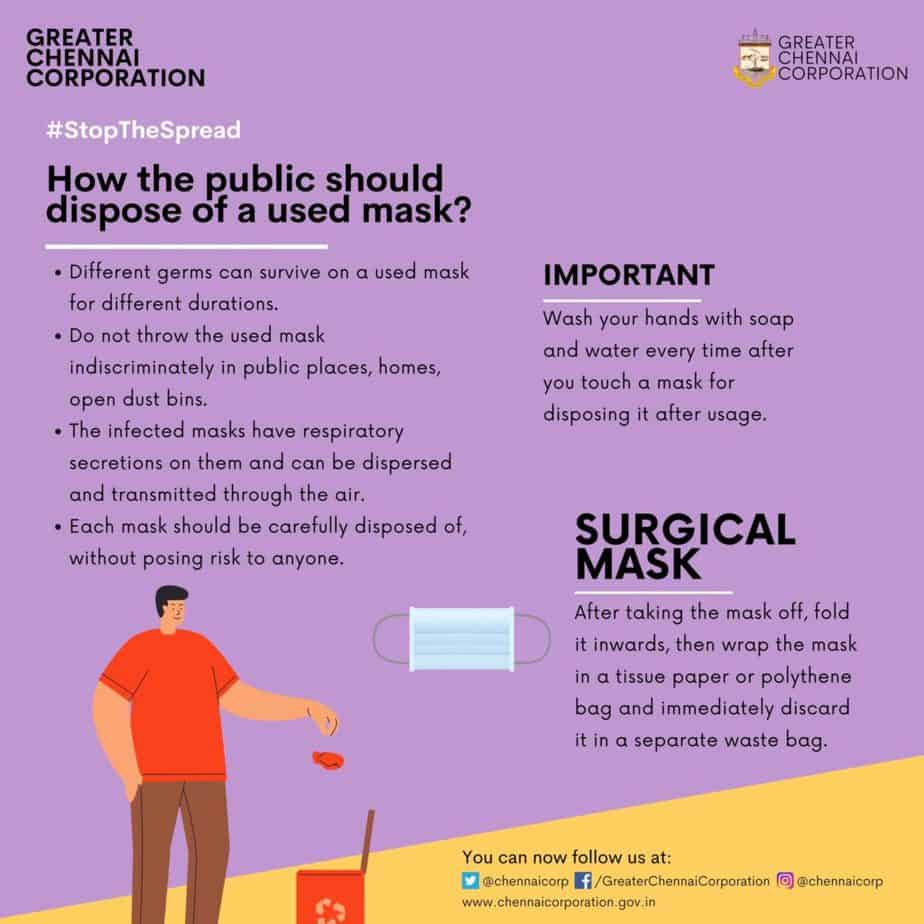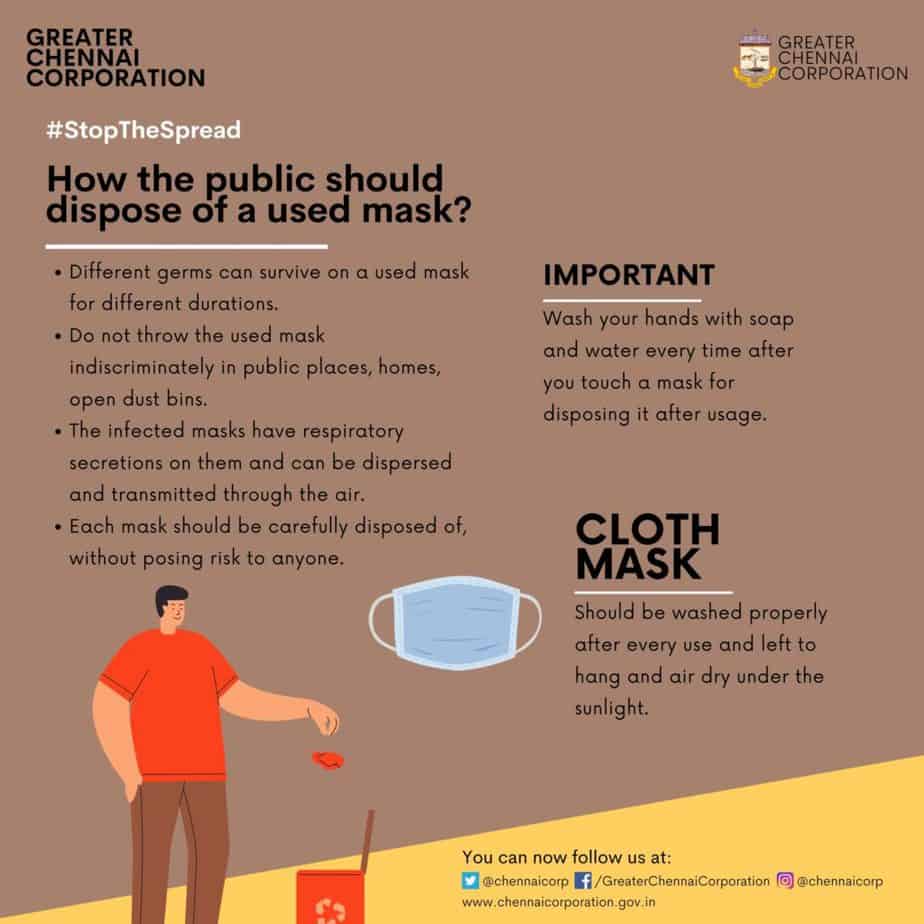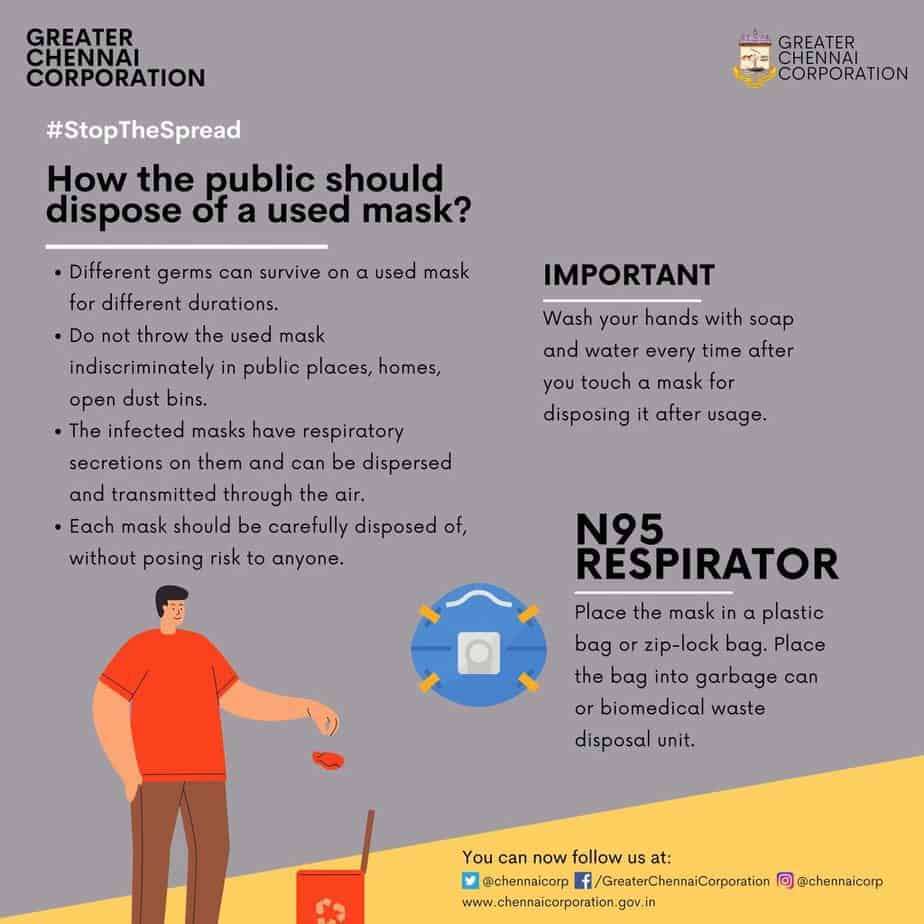Management of solid waste has been a persistent issue for various cities. Chennai has been grappling to find ways to deal with its burgeoning quantum of waste and has tried out several experiments centered around decentralisation, starting from the early 2000s.
While the city’s progress on this front has been patchy, some signs of promise had begun to sprout just before the onslaught of the COVID-19 pandemic.
Prior to lockdown
Chennai made crucial strides towards decentralised waste management with a pilot project in Anna Nagar, that saw a significant reduction in waste sent to the landfills. The Zero Waste initiative envisaged a system where collection and segregation took place at various points at the zonal level, with the setting up of the Material Recovery Facility (MRF) and Micro Composting Centers (MCC). The segregated waste is collected door-to-door before it is sent to the facilities at the ward level for secondary segregation.
Plastic, cloth, thermocol and other waste were segregated at the MRFs and then recycled and repurposed, depending on the nature of waste. Biodegradable waste was dealt with at the MCCs. Waste is cleaned and processed in the MCCs to produce compost, that is then sold to generate revenue for the Chennai Corporation.
Workers of the Corporation and informal waste workers were engaged in the process of collection, segregating the waste into various streams and processing.
This move was one the reasons behind the reduction in the quantum of waste sent to the landfill by a volume of 18000 MT/month.
In addition, a ban on single use plastic in the state was enforced in the beginning of 2019 with mixed success.
COVID and lockdown impact
With the advent of the lockdown and the spread of COVID-19 however, there has been a growing fear that the gains made in terms of segregation could be lost.
“We used to get the waste from the households segregated into wet and dry waste and would sort them further. The wet waste used to go for composting while the dry waste was categorised and recycled. But since the pandemic set in, we have been unable to go door to door for collection,due to our role in disinfecting the streets and buildings; as a result, the waste we get is all mixed now,” says Velammal R, a conservancy worker.
It is a fact that Chennai saw a drop in the overall quantity of waste sent to the landfill during the lockdown, as a result of the closure of large establishments and malls, reduced size of weddings and no dine in at restaurants; but segregation has been a key challenge that has fallen by the wayside due to constraints. All the Material Recovery Facilities and Micro Composting Centers have been inoperational since the start of the lockdown.
When segregation suffered
Waste collection has been an issue during lockdown with the previous system of segregation being unviable. An added concern is the rise in disposables by residents, especially masks and gloves.
“We are urging citizens to place masks and gloves separately and hand it over in a different bag, but we have found that most people simply discard them with other waste or throw it on the ground. It has been an issue, because conservancy workers feel unsafe and hesitate to pick up these items,” says a sanitation inspector of Chennai Corporation.
How to safely dispose masks:



The absence of segregation also means that there is no use for the composting pits and mulch pits in parks in many areas. Many of the park mulch pits have not received wet waste to be composted since the start of the lockdown. Even if it is segregated post collection, composting would be a difficult task as the quality of waste would have drastically reduced.
A worker who managed the mulch pits in Independence Day Park in T Nagar says, “The amount of waste available for the pits and the quality have both gone down drastically since the onset of COVID-19. People do not segregate as diligently anymore and such waste becomes unusable; so, we are not operating the pits. The park has been closed for most of the time.”
Small and mid-sized apartment complexes that used to segregate waste too have had a challenging time during the lockdown. “With so many people stuck indoors, segregation has been neglected. People continued to order from food delivery apps but did not separate the waste, as housekeeping staff were unavailable to collect door to door. The number of masks and other plastic waste such as sanitiser bottles too have increased,” says Balakrishna K of Cosmo Apartments in Vadapalani.
Reviving the dream of a zero-waste Chennai
The process of adoption of segregation in cities is slow. The inroads made take many months and a change in mindset and culture among the people is crucial. With COVID-19, panic has overtaken all other emotions in the minds of many, and waste management and segregation are the last thing that most people are worrying about.
“This has been a trend observed in many cities. The campaigns that were run to reinforce the message of segregation have all had to be halted, so people tend to forget. The usual channels that enable source segregation have had to be suspended due to the absence of workers, as a result of which there has been a consequent breakdown of the processes followed,” says a waste management consultant in the city.
However, officials from the Chennai Corporation are hopeful that these effects of the lockdown and COVID-19 will be short-lived. “We hope that we can resume source segregation activities as soon as the restrictions are lifted and workers are relieved from other COVID-related duties. It is an unusual circumstance, so we do not consider it a setback. Our goals will still be the same, the primary being to reduce the waste sent to landfill,” says an official with the Chennai Corporation’s Solid Waste Management Department.
Also read How Swacchata ‘didis’, ward committees and local volunteers in small towns are showing the way to waste management during COVID-19 How Gurugram is managing biomedical waste from residential communities in the time of COVID-19 Delhi: 45 sanitation workers test positive for COVID, 15 succumb, but where are the yellow bins? How to handle medical waste, kitchen waste, recyclables during COVID-19 pandemic?